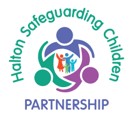Domestic Abuse
The current definition of domestic violence and abuse is:
any incident or pattern of incidents of controlling, coercive, threatening behaviour, violence or abuse between those aged 16 or over who are, or have been, intimate partners or family members regardless of gender or sexuality. The abuse can encompass, but is not limited to:
- psychological
- physical
- sexual
- financial
- emotional
Controlling behaviour is defined as “a range of acts designed to make a person subordinate and/or dependent by isolating them from sources of support, exploiting their resources and capacities for personal gain, depriving them of the means needed for independence, resistance and escape and regulating their everyday behaviour”. Coercive behaviour is defined as “an act or a pattern of acts of assault, threats, humiliation and intimidation or other abuse that is used to harm, punish, or frighten their victim”.
Cafcass Domestic Abuse Practice Policy is based on learning from audit, family feedback, complaints, critical legal judgements, and serious incidents. The practice guidance is provided to Children’s Guardians when working with children in the family court arena where domestic abuse is, or has been a presenting issue.
Multi Agency Risk Assessment Conferences (MARAC)
Multi Agency Risk Assessment Conferencing (MARAC) is a monthly meeting focused on increasing the safety of high risk victims and their children.
Dash Risk Checklist
The Dash risk checklist is used by IDVAS and other frontline professionals to identify and assess risks when a potential victim discloses domestic abuse, ‘honour’- based violence or stalking.
The questions in the Dash risk checklist are based on extensive research about domestic abuse.
The Dash risk checklist aims to enable frontline professionals and MARAC practitioners to identify high risk cases and decide which cases should be referred to MARAC and what other support might be required.
A completed Dash risk checklist becomes an active record that can be referred to in the future for case management. It offers a common tool for agencies that are part of the MARAC process and provides a shared understanding of risk in relation to domestic abuse, stalking and ‘honour’-based violence. The checklist ensures that assessments made about high risk cases are defensible and based on evidence from extensive research.
Please note that Halton now use the 27 Question DASH checklist version and this replaced the 24 Question version from the SafeLives website
